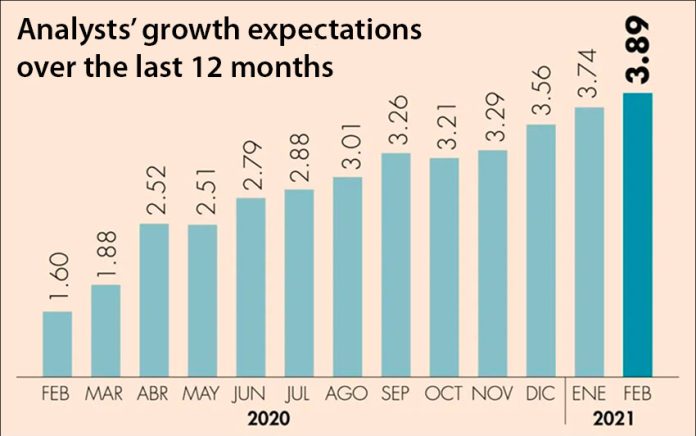Rule of law concerns, crime and corruption are the biggest barriers to investment in Mexico, according to analysts consulted by the central bank for its February expectations survey.
Two-thirds of analysts consulted by the Bank of México believe that now is not a good time to invest in the country.
The federal government has been widely criticized for changing the rules of the game in the energy sector, a move that many analysts say will scare off investment. A reform that seeks to overhaul the electricity market to favor the state-owned Federal Electricity Commission passed the Senate on Tuesday and will now go the president for promulgation.
In its first two years in office, the government has failed to make any substantial progress in reducing the high levels of violent crime. Its first full year in office, 2019, was the most violent year on record in terms of homicides and murders only declined 0.4% in 2020 despite the coronavirus pandemic.
President López Obrador claims that his administration is eradicating corruption but the 2020 Corruption Perceptions Index (CPI) published by the non-governmental organization Transparency International in January indicates that the progress made last year was minimal. Mexico ranked last out of the 37 OECD countries and its score on the CPI scale was well below the global and Americas averages.

Only 45% of analysts consulted by the central bank believe that Mexico’s business and investment climate will improve in the next six months, while 48% believe it will stay the same.
They are slightly more optimistic about Mexico’s growth prospects in 2021 after the economy slumped 8.5% last year in its worst performance since the Great Depression. The consensus forecast was 3.89% growth this year, up from a 3.74% prediction in January.
Electricity sector changes were cited by 31% of analysts as an obstacle to growth while 30% said that broader energy sector issues, including ones that affect oil, gasoline and gas, could hinder economic expansion.
The survey found a consensus forecast of 3.88% annual inflation at year’s end, up from a 3.65% prediction in January. It was the biggest fluctuation to the estimated inflation level in 12 months.
The survey also found a consensus prediction for an exchange rate of 20.32 pesos to the US dollar at the end of the year compared to a 20.18 pesos forecast in January. The exchange rate on Wednesday morning was about 20.8 pesos to one greenback, according to the currency conversion website xe.com.
The consensus forecast is that the central bank’s benchmark interest rate will be 3.73% at the end of 2020, about a quarter point lower than the current rate of 4%.
UPDATE March 3, 1:50 p.m. CT: The Bank of México raised its 2021 outlook for economic growth to 4.8%, well over its previous forecast of 3.3%. For 2022 the bank foresees growth of 3.3%, up from its earlier forecast of 2.6%.
Source: El Economista (sp)
